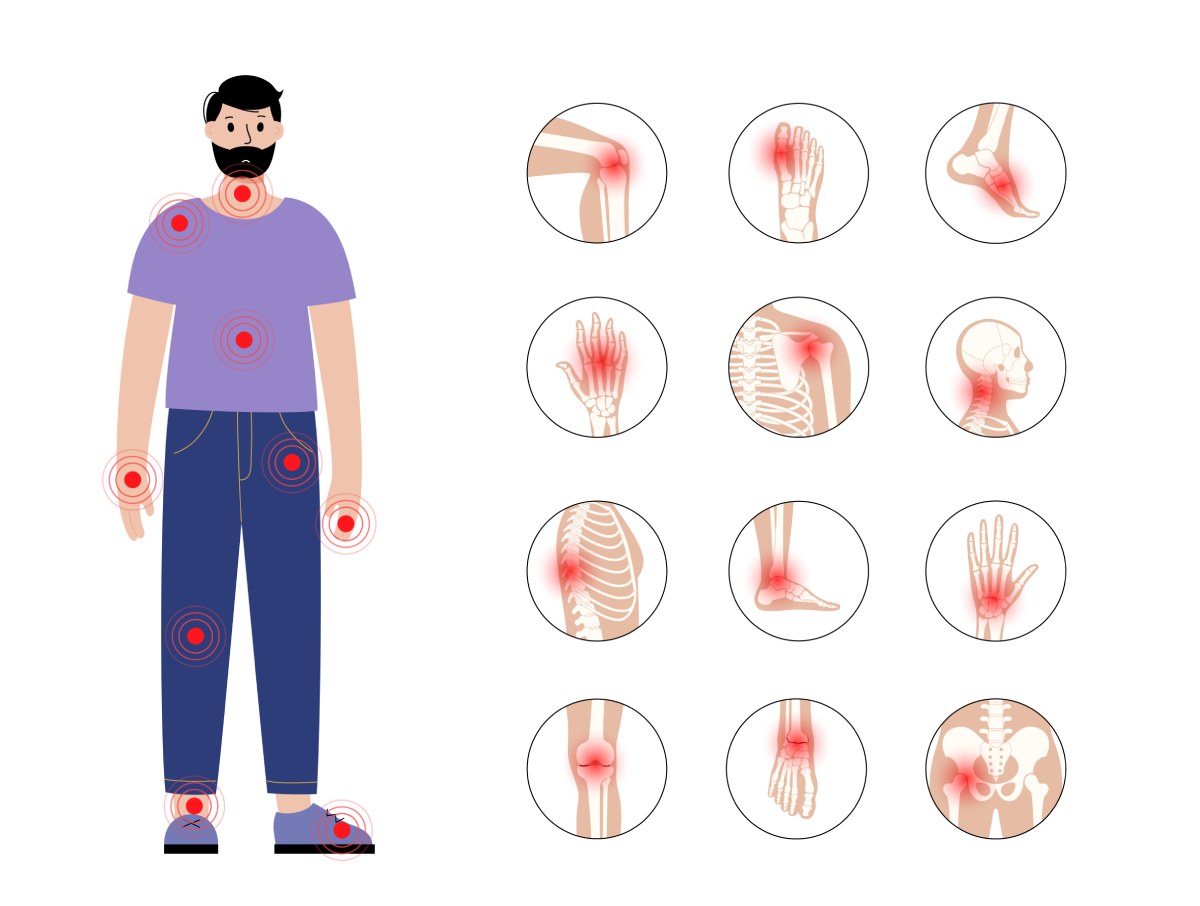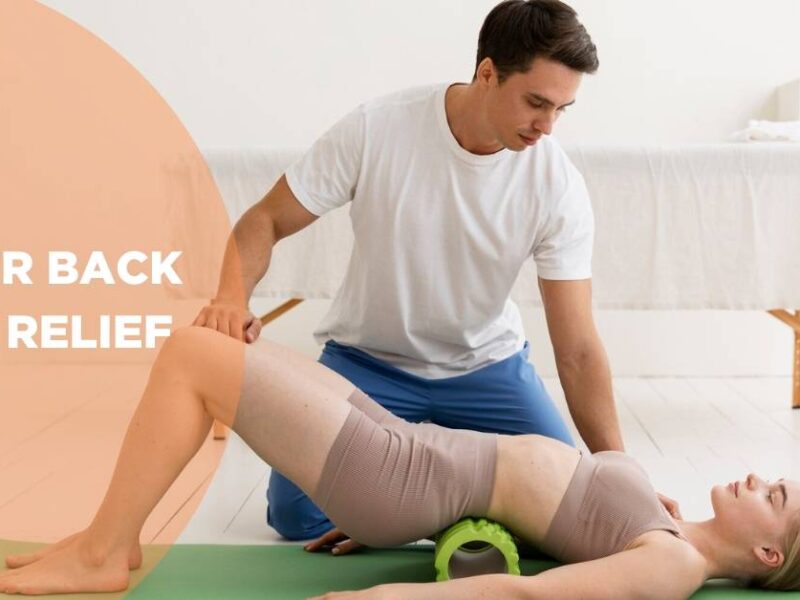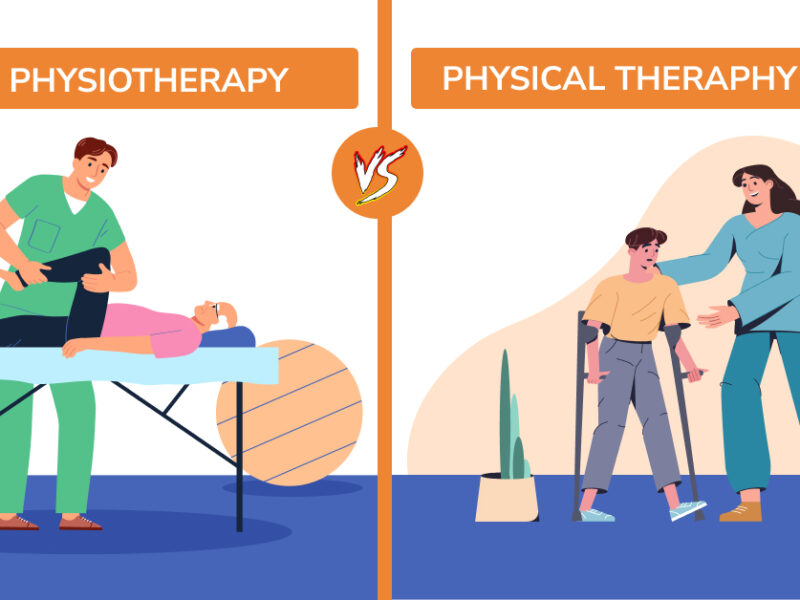Joint pain and stiffness all over the body is one of the most common problems faced by people across all age groups — from young working professionals to senior citizens. In a fast-paced city like Kolkata, where most people have long office hours, irregular eating habits, and limited physical activity, body stiffness and pain have become everyday issues.
Physiotherapy has emerged as one of the most reliable and long-term solutions for managing joint pain and stiffness all over body. Unlike temporary relief methods such as painkillers or ointments, physiotherapy focuses on identifying the root cause, improving mobility, and restoring overall function.
What Causes Joint Pain and Stiffness All Over Body?
Several factors can contribute to this problem, and understanding them is the first step toward effective treatment:
- Sedentary Lifestyle: Sitting for long hours without proper posture can cause stiffness in the spine, hips, and shoulders.
- Ageing: With age, joints lose lubrication and elasticity, leading to pain and restricted movement.
- Autoimmune Conditions: Diseases like rheumatoid arthritis or lupus can cause inflammation in multiple joints.
- Vitamin D and Calcium Deficiency: These deficiencies are common in India and can weaken bones and joints.
- Stress and Poor Sleep: Both can trigger muscle tension and amplify sensations of pain and fatigue.
Physiotherapists assess these factors to create a personalized treatment plan that targets the exact cause rather than just the symptoms.
How Physiotherapists Help Treat Joint Pain and Stiffness
Physiotherapy treatment for joint pain and stiffness is a combination of hands-on therapy, guided exercises, and modern technologies. Here’s how physiotherapists in Kolkata approach this condition:
1. Detailed Assessment
The first step is always a thorough assessment of your posture, movement pattern, muscle strength, and flexibility. This helps identify which joints or muscles are under strain.
2. Manual Therapy
Physiotherapists use hands-on techniques like joint mobilization, myofascial release, and soft tissue manipulation to relieve stiffness, improve joint mobility, and reduce pain.
3. Exercise Therapy
Customized exercise programs are designed to strengthen weak muscles, improve flexibility, and enhance joint stability. Common techniques include:
- Stretching and range-of-motion exercises
- Strength training
- Posture correction exercises
- Balance and coordination drills
4. Electrotherapy and Ultrasound
Modern physiotherapy clinics in Kolkata often use electrotherapy, ultrasound, and laser treatments to reduce inflammation and stimulate tissue healing.
5. Heat and Cold Therapy
Applying hot packs improves blood flow, while cold packs help reduce inflammation. Physiotherapists alternate these methods depending on your condition.
6. Lifestyle and Ergonomic Advice
For long-term relief, physiotherapists guide you on maintaining proper posture at work, correct sleeping positions, and daily movement habits. This ensures that pain doesn’t return once it’s treated.
Why Choose Physiotherapy Over Medication?
While painkillers can provide instant relief, they often mask the symptoms rather than solving the underlying problem. Physiotherapy, on the other hand, promotes natural healing and long-term improvement.
In Kolkata, many people are now choosing physiotherapy for body stiffness and joint pain because it:
- Reduces dependency on medicines
- Enhances mobility and strength
- Prevents future injuries
- Improves overall quality of life
Physiotherapy Treatments Available in Kolkata
Kolkata is home to some of the best pain clinics and pain management specialists who offer advanced physiotherapy treatments. Reputed clinics provide:
- Individualized therapy sessions
- Electrotherapy modalities
- Dry needling
If you’re searching for the best pain clinic in Kolkata, look for centers that have certified physiotherapists, modern equipment, and a track record of patient success stories.
When Should You See a Physiotherapist?
You should consult a physiotherapist if you notice:
- Persistent stiffness or pain lasting more than two weeks
- Difficulty in performing daily activities
- Pain that worsens with rest or after waking up
- Swelling, redness, or warmth around joints
Ignoring early signs can lead to chronic conditions and long-term disability. Early physiotherapy intervention ensures faster recovery and prevents complications.
Preventing Joint Pain and Stiffness Naturally
Besides physiotherapy, adopting simple lifestyle changes can significantly reduce the risk of joint problems:
- Stay Active: Regular walking, yoga, or swimming keeps joints flexible.
- Maintain a Balanced Diet: Include calcium-rich and anti-inflammatory foods.
- Hydrate Well: Water keeps your joints lubricated.
- Take Short Breaks: If you sit for long hours, stand up and stretch every 30–40 minutes.
- Maintain a Healthy Weight: Reduces stress on your knees, hips, and back.
FAQs About Joint Pain and Stiffness All Over Body
Q1. Can physiotherapy completely cure joint pain and stiffness?
Physiotherapy can effectively manage and often eliminate pain and stiffness by improving joint mobility and strength. However, chronic or autoimmune conditions may require ongoing management.
Q2. How many sessions are needed for relief?
It depends on your condition’s severity. Mild stiffness might improve in 4–6 sessions, while chronic pain may require several weeks of treatment.
Q3. Is physiotherapy safe for senior citizens?
Yes, physiotherapy is completely safe for seniors. In fact, it’s one of the best non-surgical approaches to maintain joint flexibility and mobility.
Q4. Can I do physiotherapy exercises at home?
Once your therapist guides you properly, you can continue specific exercises at home. Regular follow-ups ensure that you’re progressing safely.
Q5. What if I feel pain during physiotherapy sessions?
Mild discomfort is normal in the beginning, but your therapist will adjust intensity to keep it within safe limits.
Q6. Are there specialized physiotherapists in Kolkata for chronic pain?
Yes, Kolkata has experienced pain management specialists who focus on chronic conditions like arthritis, fibromyalgia, and post-surgical stiffness.
Conclusion
Joint pain and stiffness all over body can make even simple daily activities difficult. But with timely physiotherapy, expert guidance, and lifestyle changes, you can regain comfort, flexibility, and strength.
If you’re in Kolkata, visiting a reputed physiotherapy or pain management clinic can be the best step towards a pain-free life.






